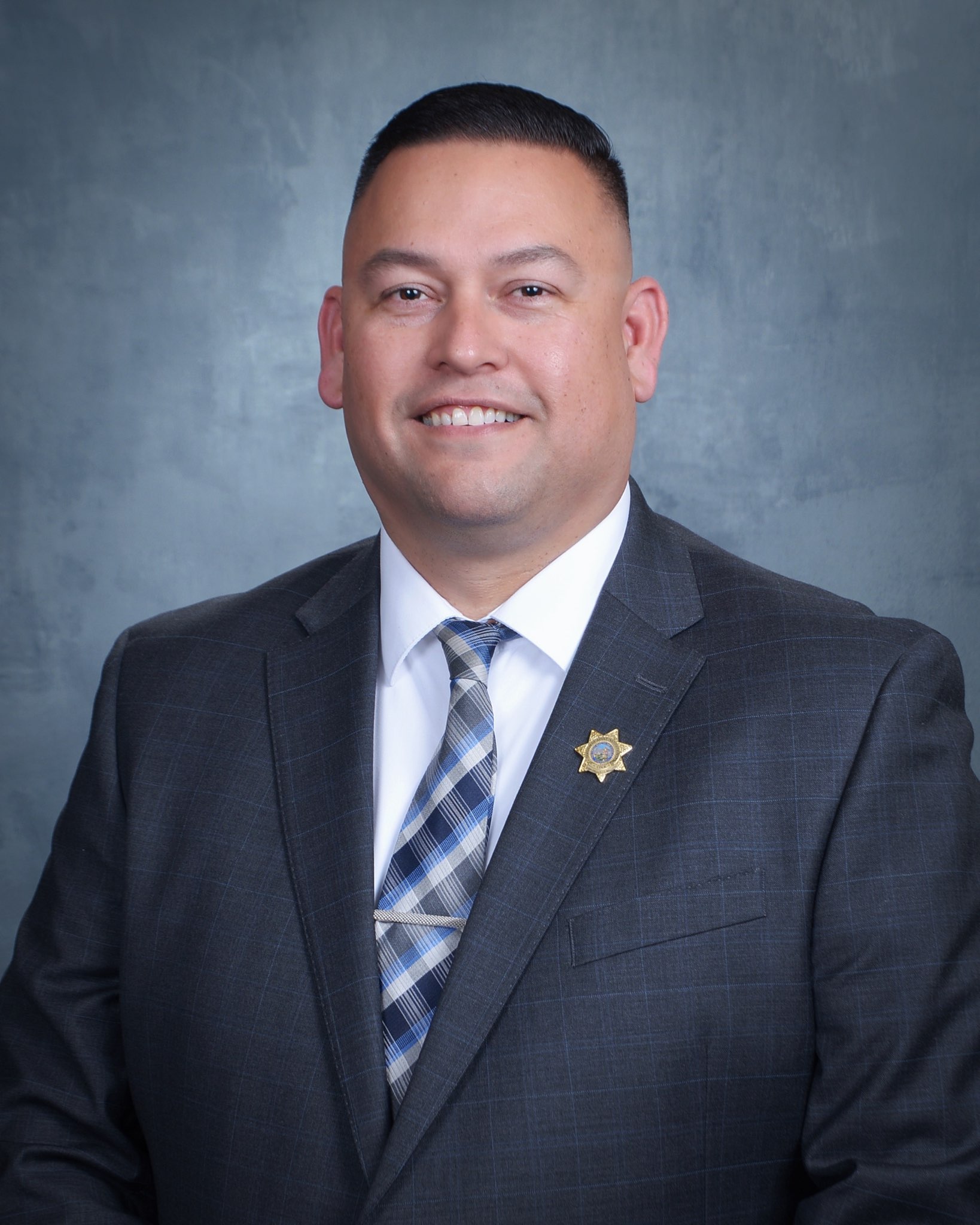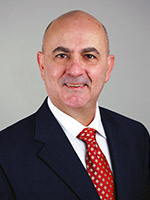Valley State Prison (VSP), Chowchilla CA
Physical Address: 21633 Avenue 24, Chowchilla, CA 93610 (Directions)
Main Phone: (559) 665-6100
- Institution: P. O. Box 99, Chowchilla, CA 93610-0099
- Inmates (make sure to include Inmate’s Name and CDCR number as well as last known housing):
- General Inmate Mail: P. O. Box 92, Chowchilla, CA 93610-0092
- Inmate Moneygram: P. O. Box 94, Chowchilla, CA 93610-0094
- Inmate Legal Mail: P. O. Box 96, Chowchilla, CA 93610-0096
- Valley State Prison Institutional Staff: P. O. Box 99, Chowchilla, CA 93610-0099
Visiting an incarcerated person: learn how to visit an incarcerated person at our institutions.
Other Resources: explore family & friends resources, including how to contact or send packages to those incarcerated in our institutions.
Integrated Substance Use Disorder Treatment (ISUDT)
Integrated Substance Use Disorder Treatment (ISUDT) is a comprehensive and evidence-based cross-divisional Cognitive Behavioral Interventions (CBI) program to identify inmates at risk for substance-use disorder (SUD) related harms and provide treatment that reduces risk of overdose and other complications associated with SUD. Treatment may include behavioral interventions or Medication Assisted Treatment (MAT), as clinically indicated.
CBI is evidence-based treatment which helps inmates understand the thoughts and feelings which influence behaviors. CBI is focused on helping inmates deal with a specific problem as identified by an assessment. During the course of treatment, inmates learn how to identify and change destructive or disturbing thought patterns which have a negative influence on behavior. CBI is an overarching entity with pathways to treatment inclusive of the ISUDT (Intensive Outpatient and Outpatient) and Life Skills programs managed under the authority of the Division of Rehabilitative Programs.
Inmates are placed into one of three program types based upon their clinical assessed need or medical referral: CBI-Intensive Outpatient, CBI-Outpatient, or CBI-Life skills.
These programs general objectives are to:
- Increase each inmate’s level of knowledge and skills associated with their SUD and issues contributing to their addiction.
- Increase each inmate’s level of knowledge and skills associated with their criminal behavior.
- Improve the inmate’s relapse and recidivism prevention strategies and skills.
- Address criminal and distorted thinking in order to eliminate anti-social thinking.
- Address the issues that contribute to the inmate’s SUD and criminal behavior including but not limited to: trauma, coping skills, relationship skills, emotion management and expression of emotions.
- Support inmates receiving MAT.
The goal of CBI programming is to eliminate criminal behavior patterns and substance use, abuse, and dependency.
Offender Mentor Certification Program (OMCP)
The Offender Mentor Certification Program (OMCP) is a voluntary program for long-term and life without the possibility of parole (LWOP) inmates, which provides them with the training, education, and an opportunity to become an Offender Mentor Certified Alcohol and Other Drug (AOD) Counselor. Upon graduating from the OMCP, the Offender Mentors are assigned as co-facilitators, working alongside AOD certified contracted counselors, in CBI programs throughout all adult institutions.
The primary goal of the OMCP is to provide CBI programs from a team of both OMCP AOD’s and AOD certified contracted counselors. At the completion of training, and upon obtaining the required amount of internship hours, Offender Mentors can obtain an AOD counseling certification from a certifying organization recognized by the Department of Health Care Services which can be used to obtain employment upon release.
Education: The VSP Education Department currently offers educational services to the inmate population via two service delivery streams; the Academic Program and the Career Technical Education Program. At any one time, the Education Department offers educational services to approximately 2,400 of our inmate population. Education is currently operating under a ‘six year accreditation without a review’ issued by the Western Association of Schools and Colleges (approximately 3% of all schools in the Western United States receive this high a level of accreditation).
Academic Education Programs: 14 classes in Adult Basic Education levels I, II, and III; General Education Development (GED); Transitions; and High School. VSP also offers AA Degree programs through Feather River Community College, Coastline Community College, and Merced Community College as well as a BA Degree program through California State University, Fresno.
Vocational Programs: Automotive Mechanics, Building Maintenance, Cosmetology, Computer and Related Technology, Small Engine Repair, Heating Ventilation and Air Conditioning, Welding, Electrical Works, Carpentry, Plumbing, and Masonry.
PIA: PIA employs approximately 215 inmates in three separate operations: Farm Operation, Eyewear Manufacturing, Laundry and Healthcare Facilities Maintenance (HFM)
Community Resources Manager (CRM) And Community Resources Department
Identify, develop, and manage community-related areas, resources to meet Valley State Prison (VSP) and inmate program needs by planning, organizing, and directing Community Partnership Program (CPP) between VSP, community, stakeholders and special interest groups. Oversee CPP development by planning, organizing, and directing programs to develop, allocate, and coordinate community resources. Provide decisions in the design and implementation of new and innovative programs to benefit inmates and the institution. Identify, develop, and coordinate collaborative partnerships with stakeholders by facilitating continuity of services and transition from incarceration to community supporting CDCR reduction in recidivism. Solicit community support and resources by contacting community leaders, agencies through providing community-sponsored activities for inmates; providing training; implementing special events to improve relations between VSP and community stakeholders. Serve as a liaison for legislatively mandated Citizens’ Advisory Committee, Inmate Family Council, Inmate Visitor Council, Volunteer Advisory Committee, other civic organizations. Seek volunteer partnerships and monitor CDCR contractors who provide services for inmates, families and visitors i.e. anger management, arts in corrections, recovery programs, parenting programs, etc.. Supervise, monitor, and support religious programs as well as chaplain’s duties including monitoring implementation of court-mandated religious services and inmate religious dietary needs. Provide direction to inmate/family service contract employees; monitors and evaluates service contracts; serves as liaison for inmate/family service contractors to prison staff; and monitors gate clearances and institutional contractor identification cards for service contractors’ volunteers. Monitor staff sponsors of Inmate Leisure Time Activity Groups, Inmate Activity Groups, faith-based and reentry programs including volunteer recruitment for inmate self-help and religious programs.
Inmate Leisure Time Activity Group Programs
Inmate Leisure Time Activity Group [ILTAG] programs are designed for leisure time activities and are provided to comply with Federal, State and Administrative requirements. The CRD provides current list of ILTAGs, posted in the Housing Units, ILTAG sponsors and representatives. Examples of ILTAGs include, but are not limit to: Alcoholics and Narcotics Anonymous (AA, NA) (12-step) programs; and Celebrate Recovery (CR), Christian-centered recovery program addressing addictions and compulsive behaviors. Inmates can earn Rehabilitative Achievement Credit (RAC) or Milestone (MCC) under the CRD for completion of approved ILTAG and IAG programs.
ILTAGs Include:
- Veteran’s Support Group- including Honor/Flag Guard, Marine Veteran volunteers
- Alcoholics Anonymous: 12 steps and Recovery & Support groups
- Victim Impact- English and Spanish
- Narcotics Anonymous: 12 steps and Recovery & Support groups
- Gavel Club similar to Toastmasters
- Criminal & Gangs Anonymous: English and Spanish
- Life and Beyond
- Celebrate Recovery: English and Spanish
- Spanish NA & AA
- SHARP – Self Help Awareness & Rehabilitation Program
- Timelist
- SAR – Self Awareness & Recovery
- Self Awareness Gathering Group – SAGG
- ART –Art Recovery Therapy
- Braille – certification; partner with local school for the blind to transcribe books
- VAMP – Valley Art and Music Program
- VSP: Veterans Service Dog program- community partnership, Inmate handler training; 4-12 months; train service dogs for veterans.
- Victim Offender-Healing Others Pain through Empathy –VO HOPE – crime survivors share experiences enabling offender accountability, crime insight, impact to reduce crime, harm, recidivism.
- YOGA – health and wellness for body and mind
- Journey to Wellness: Violence and Prevention and Domestic Violence
- Restorative Practices
- Anger Management
- GOGI – Getting Out by Going In
- Youth Offender- MAGIC
Non-ILTAG – Inmate Activity Groups (IAG) Include
- Group services such as: Prison Fellowship – TUMI [The Urban Ministry Institute] offering Christine based college courses; Freedom to Choose utilizes psychologists/psychiatrists to teach mediation; Prison of Peace an 18 month mentor certification, conflict resolution mediation program. County domestic violence, restorative justice, violence prevention, parenting skills, etc.
- Innovative, Long Term and CARE Grant vendors such as Defy, Place4Grace, GOGI, Prison Insight, VOEG, and the Inmate Center for Council.
- Family Liaison Services to assist families/offenders with the immediate and long-term effects of incarceration and act as a bridge via Conflict and Parenting Skill courses. The services include contacting lost family members, drug rehabilitation, post-prison marital assistance, transportation assistance for visiting family/departing inmates, counseling to help relieve incarceration anxiety.
- Arts In Corrections (AIC) contracted program courses through vendors i.e. California Arts Council grant, Red Ladder Theater Group, Fresno Arts Council including Djembe African Drumming; Story Creation; Native American Beadwork; Teatro/Drama; Music; Choir; Mural; Guitar. KAIROS Christian based self-improvement program; ReDirect youth diversion and scholarship program; Inmate Parenting Class by Madera Child Abuse Prevention Council, Violence/Domestic Program by Madera Victim Services; Prison Education Program 10 week, self-improvement, reflection, communication and interpersonal pro-social skills development.
Special Events
Numerous Special Events include: Get On The Bus; Bill Glass Weekend of Warriors; National Crime Victims Week walk-a-thon fundraisers; Special Olympics Northern California; Cancer Awareness including locks of love, American Cancer Society, Relay for Life, Finish the Fight Cancer walk; Fight against Human trafficking with Madera County Child Abuse Prevention Council; Back to School Backpack and Supply Drive for local elementary schools; Central California Blood Bank: Blood Drives; Coat & Toy drives.
DRP Programs
Integrated Substance Use Disorder Treatment (ISUDT)–Overview
On January 21, 2020, the California Department of Corrections and Rehabilitation (CDCR) and California Correctional Health Care Services (CCHCS) implemented ISUDT. ISUDT is a comprehensive and evidence-based cross-divisional program with pathways to treatment through DRP Cognitive Behavioral Interventions (CBI) programs referred to as:
CBI-Intensive Outpatient (Medical Classification T1, SOMS assignment code ISI) 2-hours/day, 5-days/week, 52-weeks completion
CBI-Outpatient (Medical Classification T2, SOMS assignment code ISO) 2-hours/day, 3-days/week, 14-weeks completion
CBI-Life Skills (Medical Classification T3, SOMS assignment code CB2) 2-hours/day, 3-days/week, 29-weeks completion
All participants will be assessed by medical and referred to one of the CBI classes.
Family Liaison Service Specialist
CDCR provides through a contract with a community-based organization an on-site Case Manager as a family reunification liaison for inmates and family members, to assist with an inmates pre-release preparation; and conduct Parenting and Creative Conflict Resolution classes for inmates. Please call the Institution to contact the Family Reunification Liaison.
Madera County has a rich agricultural tradition along with a strong industrial base. For outdoor enthusiasts, there are local, county, state and national parks. Bass Lake has excellent fishing, hiking trails and warm waters. An hour and a half away is Yosemite National Park world renowned for giant, ancient sequoia trees, Bridalveil Fall, and the granite cliffs of El Capitan and Half Dome. In Chowchilla, there’s the Chowchilla Stampede, held annually to celebrate the towns heritage, featuring a cattle drive through town. The town’s main attractions is the Fossil Discovery Center, where you can see the preserved remains of animals from 700,000 years ago like the Columbian Mammoth, Sabre-toothed cats and the largest bear to walk the earth!


Details
The mission of Valley State Prison (VSP) is multi-fold. VSP functions as a Level II, General Population institution housing inmates requiring Sensitive Needs Yard (SNY) placement. VSP also houses inmates who are assigned to the Enhanced Outpatient Program (EOP). The EOP provides a higher level of mental health treatment for inmate requiring a more enhanced treatment plan with mental health staff. VSP has been identified as a Re-Entry hub for the California Department of Corrections and Rehabilitations (CDCR). As a Re-Entry hub, VSP will focus on needs based rehabilitative services to include substance abuse and cognitive behavioral training. VSP offers educational and vocational training, along with work skills training through the Prison Industry Authority Optical and Laundry programs.
VSP was constructed and dedicated in 1995. The original name for VSP was Valley State Prison for Women (VSPW). VSPW housed multi-level female felons and served CDCR as the state’s only Security Housing Unit (SHU) for the female offender population. In 2011, the California Legislature passed, and Governor Brown signed into law, Assembly Bill 109 (AB109) the Governor’s Public Safety Re-Alignment bill. The result of that law was a decrease in the female offender population and the recidivism rate. CDCR seeing the drastic reduction in the female population saw the opportunity to utilize VSPW to house level II SNY male inmates. In October 2012, VSPW began a historic conversion from an all female institution to an all male institution. In January 2013, the conversion was successfully completed and the name changed to Valley State Prison or VSP.

Raul Morales has been acting Warden at Valley State Prison, (VSP) since February 2024.
Mr. Morales previously served as the Chief Deputy Warden at the California Substance Abuse Treatment Facility, (SATF) in an out-of-class assignment beginning December 2022, and appointed to Chief Deputy Warden on June 2023.
Mr. Morales began his career with the California Department of Corrections and Rehabilitation (CDCR) in November 2001, when he attended the CDCR Basic Correctional Officer Academy in Galt, California. Upon graduation, Mr. Morales reported to SATF and remained there until reporting to VSP.
Mr. Morales career path is as follows: Correctional Officer from November 2001 to July 2005, Correctional Sergeant from August 2005 to June 2008, Correctional Lieutenant from July 2008 to December 2014, out-of-class Correctional Captain from January 2015 to June 2015, Correctional Captain from July 2015 to September 2018, and Associate Warden from
October 2018 to December 2022.
As an Associate Warden, Mr. Morales worked various assignments throughout SATF. He was responsible for SATF’s Health Care Access Department for the incarcerated population, Central Operations and Facility IV-C General Population Facility, Complex I (Level II General Population Facility, Sensitive Needs Yard and Restricted Housing Unit) and Business Services.

Raul Recarey is the CEO at VSP. Raul is uniquely experienced in managing complex healthcare organizations, as well as health IT-related projects. Prior to moving to California, Raul was appointed by Governor Quinn to head the HIE initiative for the state of Illinois as Executive Director for ILHIE, the state’s Health Information Exchange. He also implemented Missouri’s health network as President and CEO of that state’s Health Information Exchange after having served as chief operating officer and acting executive director of the West Virginia Health Information Network. Prior to that, Raul was vice president of Health Programs at Wells Fargo Insurance Services where he was responsible for developing disease management and population health solutions centered on using advanced analytics. He also founded MedicorpCare, a disease-management consulting firm, dedicated to helping large, self-insured employer groups address rising healthcare costs. Raul’s extensive healthcare background also includes administration of Acute Care Hospital and he has held several executive positions within the Managed Care and PPO industries.
Local Inmate Family Councils (IFC’s) are a gathering of family and friends of the incarcerated who meet regularly with Wardens to support visiting since keeping strong family connections with loved ones is a powerful rehabilitative tool. These IFC’s promote visiting by clarifying rules and regulations as well as discussing health, education, vocational training, packages, books, and related issues. For more information on connecting with a local IFC, please visit the Statewide IFC website.